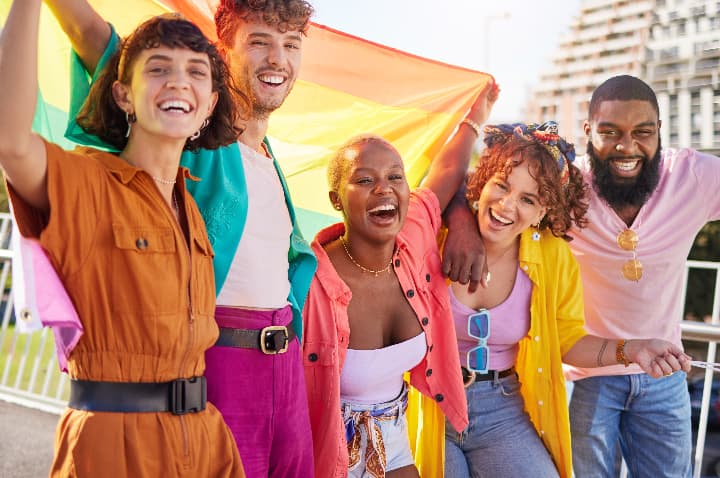
Understanding Pride Month: Why We Celebrate and Its Importance
Pride Month, celebrated every June, honours the LGBTQ+ community's struggles and achievements in the fight for equality and justice. It commemorates the pivotal Stonewall Riots of June 28, 1969, which marked the beginning of a united LGBTQ+ liberation movement. This blog delves into the history of Pride Month, the progress made in LGBTQ+ rights, particularly in Ireland, and how you can participate in the celebrations.
The History:
On June 28, 1969, patrons of The Stonewall Inn on Christopher Street in New York grew tired and frustrated with the constant oppression from the police, leading to a historic uprising. This bar was a haven for the LGBTQ+ (Lesbian, Gay, Bisexual, Transgender, Queer, Questioning, and Ace) community at the time, frequently raided by police. On this night, the LGBTQ+ community fought back, stood together, and initiated an organised protest. The riot lasted five nights, eventually leading to the police backing off. Two weeks later, the Gay Liberation Movement announced a formal response to the injustices faced by the gay and lesbian community in the USA, sparking a global battle for equal rights that continues to impact the lives of LGBTQ+ people worldwide. Since 1970, various protests, street parties, and parades have taken place every June to commemorate the Stonewall Riots and support LGBTQ+ rights.
Progress in Ireland:
Ireland has made significant strides in LGBTQ+ rights:
-May 22, 2015: The Irish people voted in favour of equal marriage, changing the constitution to recognize marriage irrespective of the partners' sex.
-2017: Legislation was enacted to allow same-sex parents the right to adopt a child. Discrimination based on sexual orientation has been outlawed since 1998.
-Irish Armed Forces: LGBTQ+ people can serve openly.
-September 2015: The Gender Recognition Act was passed, allowing individuals to determine their gender without medical intervention or state assessment.
These achievements highlight the significant progress made towards a more inclusive country. However, Pride Month continues to be important to support global LGBTQ+ rights, as many countries still oppress and punish LGBTQ+ individuals. We must continue to fight for equality and shine a light on these injustices.
Evolving Pride Symbols:
Pride has always been an evolving social justice movement. The familiar six-stripe flag (red, orange, yellow, green, blue, and purple) has now included black (symbolising diversity) and brown (symbolising inclusivity) stripes to highlight the continued injustice experienced by people of colour within the LGBTQ+ community. There are also variations, including the Trans Pride flag.
How to Celebrate Pride Month:
Educate Yourself: Learn about the terms, experiences, and history mentioned here. Start with resources like the Stonewall glossary of terms.
Engage: Watch videos on the history of LGBTQ+ rights, talk to friends and colleagues who identify as LGBTQ+, and watch TV shows or films presenting LGBTQ+ views.
Participate: Join local celebrations and parades organised in your area to show your support.
At Centric Mental Health, we have specialist clinicians who are experienced in supporting and understanding the unique challenges faced by the LGBTQ+ community. Our team is dedicated to providing compassionate and tailored care to help you navigate your journey. If you or someone you know needs support, please reach out to us at (01) 6111719 or email [email protected]
Note: The content in this blog is for informational and educational purposes only and is not intended as a substitute for professional medical advice, diagnosis, or treatment. Always seek the advice of your doctor or qualified healthcare provider with any questions you may have regarding a medical condition or treatment.




